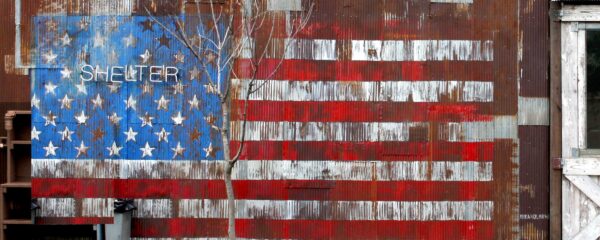Trial Begins in Landmark Challenge to Anti-Immigrant Laws in Hazleton, PA
FOR IMMEDIATE RELEASE
CONTACT: media@aclu.org
Laws Would Legitimize Discrimination Against Immigrant Community, Groups Charge
SCRANTON, PA - A federal trial began here today in a landmark challenge to local ordinances that seek to punish landlords and employers who do business with undocumented immigrants. Attorneys representing residents and business owners in Hazleton, PA argued that the laws are unconstitutional because they seek to trump federal immigration policy, and would legitimize discrimination against anyone who looks or sounds foreign.
The challenge was brought by the American Civil Liberties Union, the ACLU of Pennsylvania, the Puerto Rican Legal Defense and Education Fund, the Community Justice Project and the law firm of Cozen O’Connor, and has garnered support from such unlikely allies as the U.S. Chamber of Commerce and the U.S. Council of Catholic Bishops.
“This case is not about illegal immigration, it is about upholding the Constitution,” said Vic Walczak, the ACLU’s lead attorney in the case and Legal Director of the ACLU of Pennsylvania. “Immigration policy in this country is going to be a much bigger mess if small towns like Hazleton are allowed to set their own rules and standards about which immigrants can live and work there.”
The laws passed by Hazleton would revoke the business permits of landlords who do not immediately evict anyone the city identifies as an “illegal alien” and would shut down businesses that do not immediately fire such persons. They would also require anyone who wished to reside in rental housing to provide immigration documentation to the city in order to get a permit to do so. Judge James M. Munley, who is presiding over the trial, issued a temporary restraining order in October blocking the ordinances from taking effect until a decision is reached in the case.
“Anti-immigrant laws like those in Hazleton are misguided, unconstitutional and undemocratic,” said Anthony D. Romero, Executive Director of the national ACLU. “These laws encourage racial profiling and undercut American values of fairness and equality.”
The groups charge that Hazleton has exceeded its authority by attempting to set its own immigration laws. Hazleton officials are unfamiliar with laws governing immigration and are not trained in how to identify legitimate immigration documents.
“If these laws go into effect, Hazleton would create an environment where residents accuse their Latino neighbors of being ‘illegal,’” said Cesar Perales, President and General Counsel of the Puerto Rican Legal Defense and Education Fund. “The government should prohibit discrimination, not require it.”
Without citing any evidence, Hazleton officials have claimed that undocumented immigrants are responsible for an increase in local crime. But such claims fly in the face of the facts, said the ACLU. Analysis of U.S. Census data over the past three decades -- a period of high immigration -- shows that immigrants have the lowest incarceration rates of young men of every ethnic group. And a 2002 study shows that the rate of incarceration among native-born men was five times higher than that of foreign-born men.
More than 80 cities and towns across America have proposed laws similar to those in Hazleton. In many cases, these ordinances deprive individuals of due process by terminating employment or housing without a proper hearing. Many Latino business owners and legal residents have moved away from towns with ordinances because of increasingly hostile climates.
As a result of challenges by the ACLU and other groups, these unconstitutional ordinances have seen some recent pushback. In several cases where challenges had been brought against local ordinances, the courts found that the cities had over-reached when trying to pass a law that is preempted by federal immigration laws, and agreed to temporarily block their implementation. Nearly 20 of the laws that have passed have been tabled or defeated.
The Hazleton case is Lozano v. Hazleton and is in U.S. District Court for the Middle District of Pennsylvania. The trial is expected to last two weeks. More information on this case, including a trial blog, is online at www.aclu.org/hazleton.


